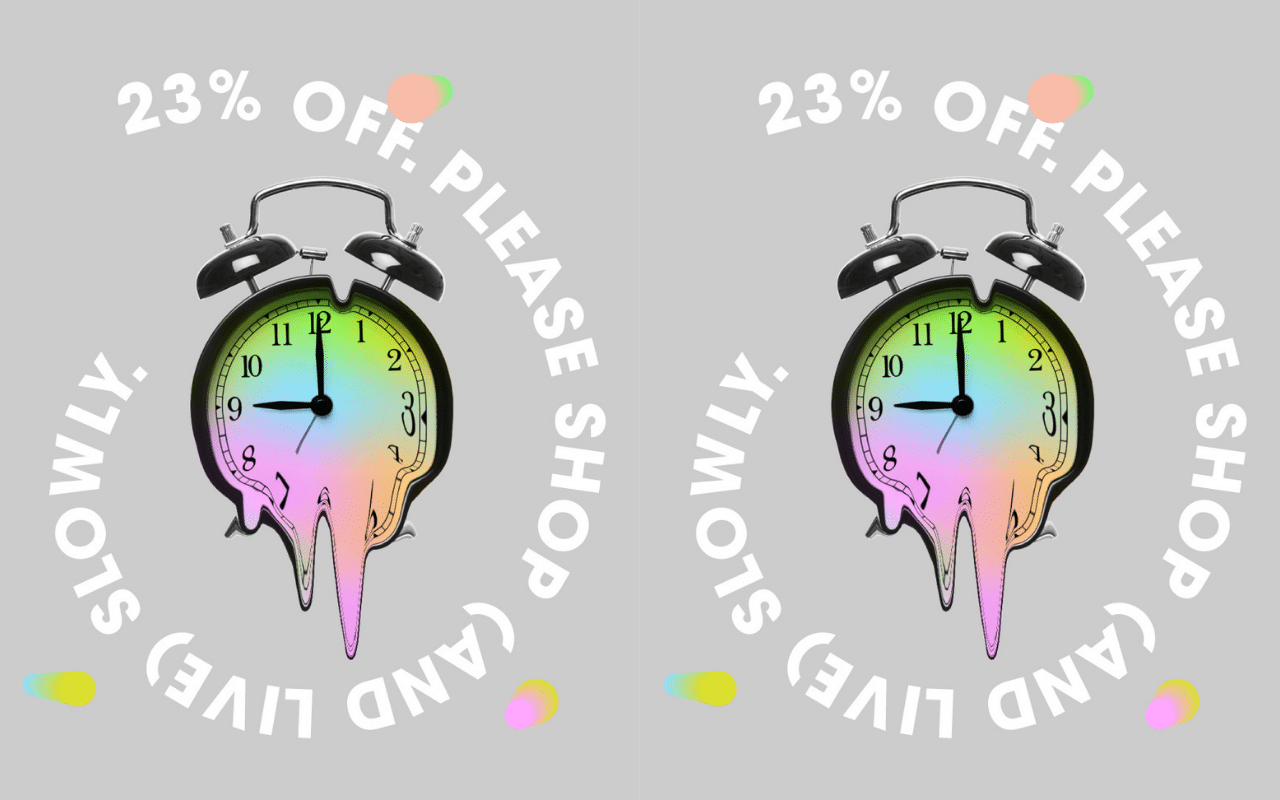
After two years of on-again-off-again lockdowns, the explosive success of Squid Game and amplified conversation around climate change— the damaging effects of consumerism have been gaining traction for years. In courting the youngest generation of shoppers, brands have been forced to move away from overproduction and seasonal turnovers and instead publicly prioritise sustainable, ethical production and transparent business practices.
Synonymous with the word ‘sale’ in 2021, the culture of overconsumption, impulse buying and hysteria associated with Black Friday (November 26th), stands in stark comparison to the mindful practices brands publicly subscribe to for the majority of the year. As a result, brands that are choosing to opt out of Black Friday or even more broadly, flash sales overall, are more likely to earn the loyalty of the Gen Z consumer and reap the long term benefits. So, why then does Black Friday continue to have a foothold in 2021? Especially online? A domain that is largely dominated by young and savvy shoppers?
For brands, it’s obviously hard to resist the allure of the profit bump. Australia Post reported the first week of December and the week of Black Friday (of 2020) recording the biggest number of online purchases Australia has ever seen, with growth of 42% and 48% respectively. But for individuals, “Black Friday is a time of the year that…pressures panic stricken customers into impulse purchasing in order to secure a discount,” explains Jackie Kankam, Director of Sustainability and Social Impact at DECIEM— a brand looking to flip the Black Friday promotion mentality on its head.
Known for their affordable and efficacious skincare, as well as walking the walk so to speak, DECIEM is grounded in an ethos of transparency, partly doing so by acknowledging that a “business based on consumption cannot be truly and fully sustainable within the current limits of sustainability in business.”
“Not only is the Earth feeling pressure due to an increased demand for resources, but it is also overloaded with the byproduct of human consumption,” says Kankam.
No doubt a tricky line to walk, balancing selling consumer products with environmental and social responsibility, DECIEM have most recently announced Slowvember: the company offering 23% off every product for the month of November, allowing people the time, headspace, and consideration to welcome only the products most suited to their specific needs. Additionally, Black Friday has transformed to Black(out) Friday for the brand, a day where stores and websites will be closed globally, with products unavailable for purchase— making way instead for activities that encourage connection through soothing experiences, such as live music, floral arranging, and poetry readings.
In taking a stand against traditional promotions, Kankam explains the company’s focus has “always been on education not sales and empowering our customers to shop slowly…Busy sales periods can be overwhelming for customers, so we want to encourage slowing down and taking a moment of calm.”
With the Glasgow Climate Conference also underway, it’s easy to see how climate is top of mind for young consumers, a driving force behind DECIEM’s strategies. “We believe [in using] our growth to power good for [the] Earth, people and animals,” says Kankam. The company’s sustainability initiatives range from using renewable energy across their warehouses, to carbon offsetting to partnering with local indigenous communities to install solar panels and encourage conversion from diesel to renewable power.
While abstaining completely from buying sale items throughout the year may seem unrealistic, strategies like Slowvember and Black(out) Friday are shifting the focus for consumers— not only allowing but encouraging more considered purchases. Fashion brands like Patagonia and Allbirds similarly, have taken a stance against the shopping event, solidifying their position as leaders in sustainability (as sustainable as a consumer brand can possibly be, at least). By aligning wholeheartedly with something bigger, these brands not only give consumers permission to opt out of the madness, but will likely find a growing and loyal customer base of people that feel the same.


